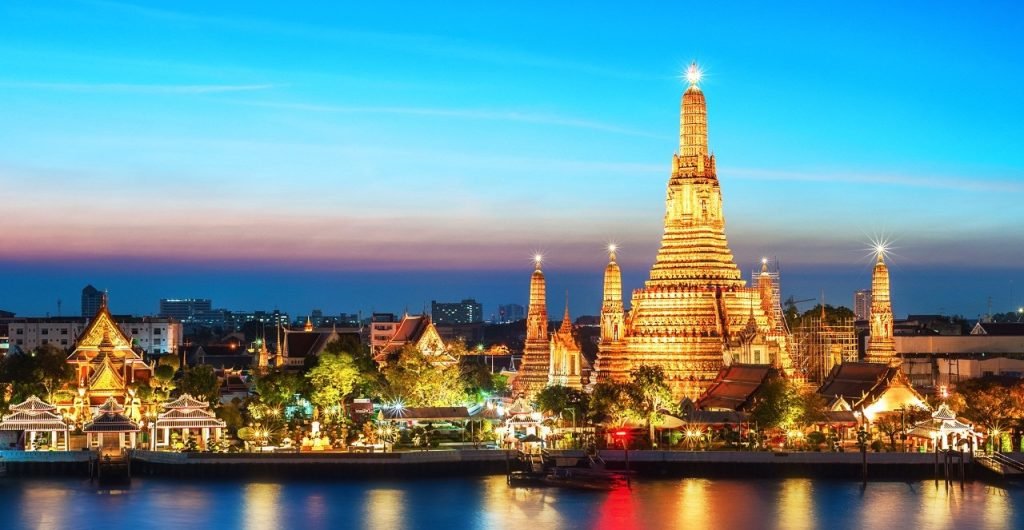Thailand Long-Term Resident (LTR) Visa: 10-Year Residency for Investors, Retirees, and Professionals
Meta Description
Explore Thailand’s 10-year Long-Term Resident (LTR) Visa program. Learn about eligibility categories, investment requirements, benefits, and how wealthy individuals, retirees, professionals, and remote workers can qualify.

Introduction
In September 2022, Thailand introduced the Long-Term Resident (LTR) Visa, a 10-year residency option designed to attract wealthy individuals, retirees, highly-skilled professionals, and remote workers. Unlike traditional retirement or business visas, the LTR Visa provides long-term stability with added benefits such as tax incentives, work authorization, and simplified immigration procedures.
Although the program does not grant permanent residency or citizenship, it is an attractive solution for those seeking long-term presence in Thailand while enjoying flexibility and reduced bureaucratic hurdles.

Program at a Glance
- Program Type: Golden Visa / Long-Term Residence
- Visa Validity: 10 years (renewable)
- Time to PR or Citizenship: Not applicable
- Minimum Investment: US$0–500,000 depending on category
- Physical Presence Requirement: None
- Application Processing Time: ~1 month
- Visa-Free Travel: 82 destinations (including Japan, China, Russia, Turkey)
- Contribution Types: Bond investment, business investment, property purchase
General Requirements (for all applicants)
Every LTR applicant must present one of the following:
- Health insurance policy covering at least US$50,000, OR
- Proof of social security benefits in Thailand, OR
- Proof of at least US$100,000 maintained in a Thai bank account for the 12 months prior to application.
Eligibility Categories
1. Wealthy Global Citizens
- Hold assets of at least US$1 million.
- Invest a minimum of US$500,000 in Thai government bonds, registered companies, or real estate.
2. Wealthy Pensioners
- Must be aged 50 or older.
- Stable passive income or pension of at least US$80,000/year.
- For income between US$40,000–80,000/year, an additional investment of US$250,000 in Thai bonds, companies, or property is required.
3. Remote Workers (“Work-from-Thailand Professionals”)
- Must work for a well-established foreign employer: A publicly listed company, OR A private company with at least US$50 million in revenue over the past 3 years.
- Minimum personal income: US$80,000/year for the past 2 years.
- For those earning US$40,000–80,000/year, additional qualifications (such as a Master’s degree or higher) are required.
4. Highly-Skilled Professionals
- Must work in a targeted industry for a Thai or foreign company, research center, higher education institution, or government agency.
- At least 5 years’ experience in the past 10 years (PhD holders or government agency workers may be exempt).
- Minimum personal income: US$80,000/year for the past 2 years.
- Applicants with US$40,000–80,000/year income must provide additional qualifications.
Program Benefits
- 10-Year Visa Validity – stability for families and professionals.
- Minimal Residency Requirement – no strict stay obligations.
- Fast Processing – typically within one month.
- Tax Advantages – including possible reductions for skilled professionals.
- Low Cost of Living – attractive compared to Western countries.
- Safety and Climate – secure environment, warm tropical lifestyle.
Limitations
- No PR or Citizenship Pathway – the visa is strictly temporary, renewable every 10 years.
- Strict Qualification Criteria – particularly for income and investments.
- Work Restrictions – only valid for specified employment categories.
Path to Citizenship
The LTR Visa does not provide a direct path to permanent residency or citizenship. Applicants seeking full settlement must use alternative routes under Thai immigration law.
Program Authority
- Administered by: Expatriate Services Division (One Stop Service Center for Visa and Work Permit – OSS)
- Legal Basis: Cabinet Resolution of September 14, 2021; Ministerial Regulation No. 29 (B.E. 2565)
Frequently Asked Questions (FAQ)
Q1: How long is the LTR Visa valid?
A: It is valid for 10 years and can be renewed.
Q2: Can LTR Visa holders work in Thailand?
A: Yes, with work authorization under certain categories (highly-skilled professionals, remote workers).
Q3: Does the LTR Visa lead to Thai citizenship?
A: No, it does not provide a pathway to permanent residency or citizenship.
Q4: How fast is the approval process?
A: Generally around 1 month if documentation is complete.
User Comments
Markus – Investor from Germany
The LTR Visa gave me a 10-year base in Thailand. It’s flexible, though it’s clearly not meant for those looking for permanent settlement.
Sophia – Digital Nomad
As a remote worker, I found the requirements strict but fair. Once approved, the lifestyle here is unbeatable.
Tanaka – Retiree from Japan
The Wealthy Pensioner option was suitable for me. The income proof requirement was clear, and the process was relatively smooth.
David – Tech Professional
For highly-skilled workers, the LTR Visa is a real opportunity, but you need to align with Thailand’s targeted industries.
Editor’s Note
Thailand’s LTR Visa is best for those who want long-term but flexible residency in the country—retirees, wealthy individuals, remote professionals, or specialists in targeted industries. While it does not provide citizenship or permanent residency, the visa is attractive for its simplicity, low costs, and lifestyle appeal.
For those seeking permanent migration or a second passport, alternatives like Malaysia MM2H or Singapore GIP may be more appropriate.
Thailand Elite Residence Program
Tags
Thailand LTR Visa | Residency by Investment | Golden Visa Thailand | Remote Work Visa | Retirement Visa Asia | Residency Programs

